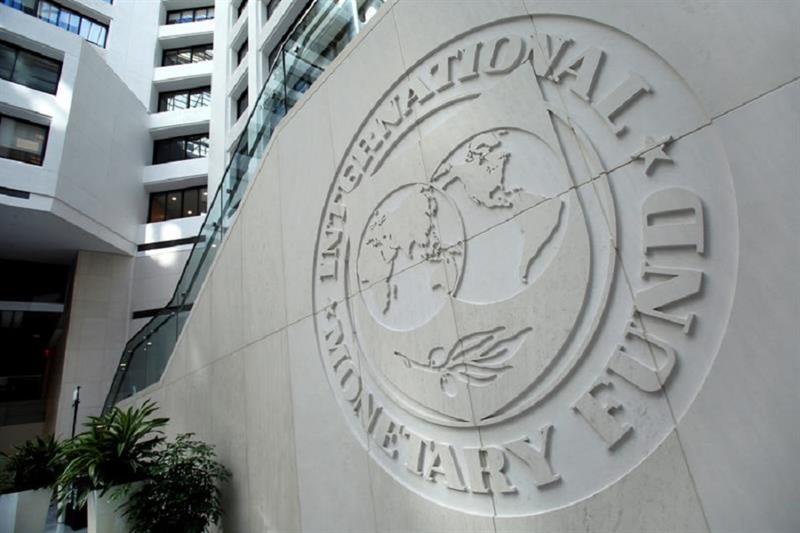
The International Monetary Fund logo is seen inside its headquarters at the end of the IMF/World Bank annual meetings in Washington, US, 2016. Reuters
The IMF is not requiring that the Egyptian government reduce social spending, the Cabinet’s Information and Decision Support Centre (IDSC) said in a statement.
The new loan will support the second phase of Egypt’s national economic and social reform programme, which aims to boost economic growth, encourage investments, stimulate exports, and create more job opportunities, the IDSC said.
The new loan also seeks to enhance the social protection and safety network and support macroeconomic stability in the face of the external shocks resulting from the current global crises, said the statement.
Late on Friday, the Executive Board of the IMF approved a $3 billion 46-month loan deal for Egypt under the Fund’s Extended Fund Facility (EFF) with an immediate disbursement of about $347 million as a first tranche.
The IMF deal is the second under the EFF, Egypt’s third since the onset of the war in Ukraine, the fourth since the implementation of the country's first wave of economic reforms (2016-2019), and the 12th since Egypt became a member of the IMF in 1945.
In a statement, the IMF said the current Egyptian programme presents a comprehensive policy package to protect macroeconomic stability and open the door for private-sector-led growth.
Expanding social spending
The IDSC says the funds from the new loan will be used to expand the scope of social spending and cash transfers under the Takaful and Karama programme so that it covers an additional 5 million families.
The new programme will also work on expanding the comprehensive health insurance system, continuing the COVID-19 vaccination programme, and providing emergency support to holders of ration cards.
In addition, the programme will focus on taking measures to protect the purchasing power of workers with limited wages and pensioners and ensure that social protection programmes are directed to those entitled to them, the IDSC added.
Support for the vulnerable unaffected
The centre stressed that the value of the support directed to vulnerable families was not affected by Egypt’s two previous programmes with the IMF.
The total sums the country allocated to social protection programmes hit EGP 356 billion in the fiscal year 2022/2023, up from EGP 277 billion in FY 2016/2017, the IDSC said.
For three years after the implementation of Egypt’s IMF-backed programme in 2016, spending on social protection programmes totalled EGP 894 billion, according to the IDSC.
The average annual growth rate in spending on support and social protection programs hit 6 percent following the implementation of the program, the centre added.
Fulfilling economic commitments
The IMF’s approval of the new programme represents an additional confirmation of the support provided by the international community and development partners to the Egyptian economic reform programme, the Cabinet said in a separate statement.
The new agreement regarding the loan, which Egypt reached with the IMF late in October without additional conditions or burdens, gives a positive signal to the local and foreign markets and a powerful boost to investments, exports, and international trade movement with Egypt, the Cabinet added.
The Egyptian government will work on maintaining efforts for fiscal discipline by continuing to achieve an annual primary surplus in the general budget and ensuring a downward public debt trajectory so that it declines to less than 80 percent of the gross domestic product (GDP), the statement added.
IMF’s support amid global challenges
The IMF’s approval of the new loan comes after months of negotiations between the two sides after Egypt had requested the loan in March under a fresh economic reform programme to address the harsh impacts of the Ukraine war on the Egyptian economy.
Since the spark of the conflict, the Central Bank of Egypt (CBE) has hiked the interest rates by a total of 5 percent (500 bps) and has devaluated the Egyptian pound against the US dollar by over 55 percent.
The Monetary Policy Committee of the Central Bank of Egypt (CBE) is anticipated to convene on Thursday for the last time in 2022 to review the key interest rates amid the ongoing global economic updates and in light of the new IMF deal measures.
In June 2020, to address the severe impacts of the pandemic on the national economy, Egypt secured two loans from the IMF totalling about $8 billion.
Short link: